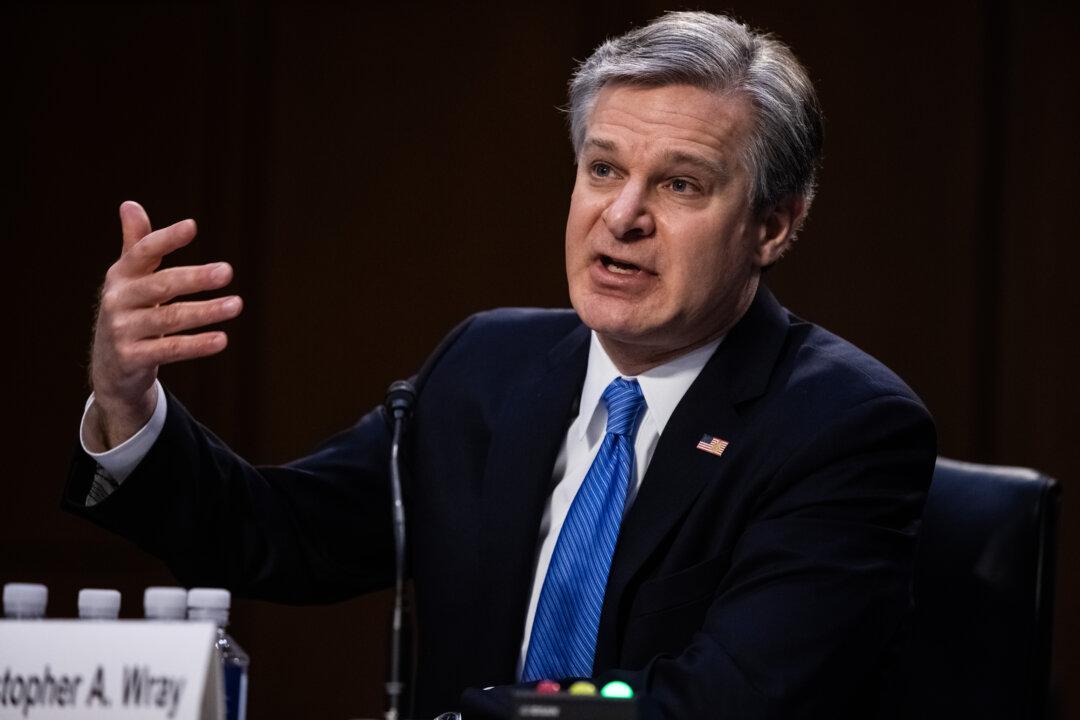FBI Director Christopher Wray told a Senate hearing Tuesday that while he could not confirm that the agency was using geolocation data to track Capitol rioters, he said the nature of the investigation is such that it “would not surprise me.”
Wray made the remarks at a hearing of the Senate Judiciary Committee hearing on Capitol Hill, in response to a line of inquiry by Sens. Mike Lee (R-Utah) and Josh Hawley (R-Mo.), who pressed the FBI director about the methods federal law enforcement officials have been using to track people who took part in the Jan. 6 Capitol breach.





